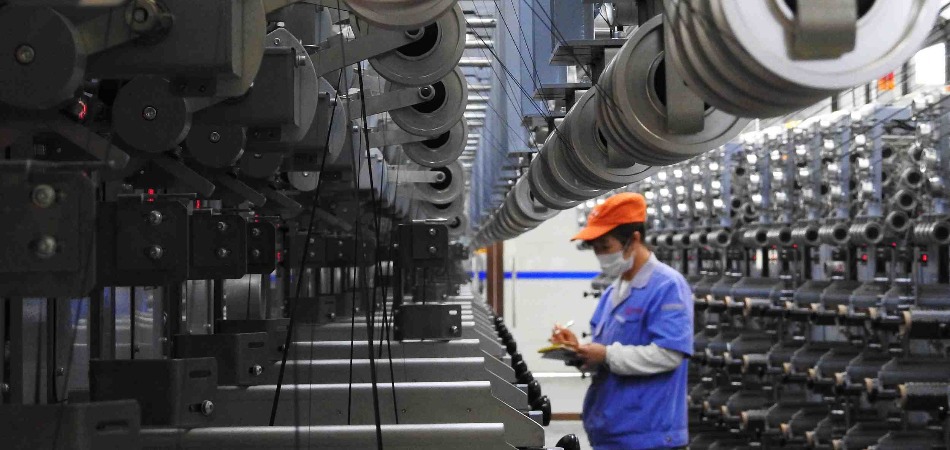Asia stocks climb but tensions linger

By MG News | August 08, 2019 at 09:40 AM GMT+05:00
Aug 08, 2019: Asian markets rose Thursday on bargain-hunting by investors following a week of heavy losses due to anxiety over the deepening US-China trade war.
But tensions remained high, prompting a rush on safe-haven assets such as bonds, gold and the Japanese yen.
Bond yields plunged on Wednesday as prices climbed, with the benchmark US government 10-year note dropping to multi-year lows, while French and German bond yields, already in negative territory, set new record lows.
In Tokyo, the Nikkei gained 0.6 percent, after shedding more than 1,000 points in a four-day losing streak.
But investors stayed away from active buying with the yen remaining strong, raising worries for Japanese exporters' earnings and the impact on their repatriated profits.
Shanghai also climbed 0.7 percent, enjoying a boost after global index complier MSCI announced it would increase the weighting of Chinese shares in its indices from 10 to 15 percent from late August.
Hong Kong rose 0.4 percent while Seoul added 0.9 percent. Sydney gained 0.1 percent but Singapore dropped 0.5 percent.
Equities had tumbled Monday after Beijing allowed the yuan to slide sharply against the dollar following US President Donald Trump's announcement that he would impose 10 percent tariffs on another $300 billion in Chinese goods starting September 1.
But Beijing's move to stabilise the yuan after both onshore and offshore rates dropped below the key 7.0 per dollar threshold helped to ease investor fears.
Even though the central bank set the currency's central parity rate above 7.0 for the first time in 11 years on Thursday, analysts were unruffled, saying the yuan fix was stronger than expected.
"The fact that it's only gone through 7 today and it didn't on Tuesday really tells you that they are signalling to the market that we don't want the currency to depreciate too quickly", said Julian Evans-Pritchard, senior China economist at Capital Economics.
"They don't want a very sharp, sudden move weaker that could result in a big jump in capital outflow. So they are trying to effectively manage the process and engineer a gradual depreciation," he told AFP.
Multiple rounds of tit-for-tat tariffs between the United States and China have hammered trade and raised concern for the health of the global economy.
Negotiators are set to reconvene in Washington in early September for another round of talks after last week's discussions in Shanghai, but hopes for an agreement are low.
AFP/APP
Related News
| Name | Price/Vol | %Chg/NChg |
|---|---|---|
| KSE100 | 125,627.31 258.99M |
1.00% 1248.25 |
| ALLSHR | 78,584.71 1,142.41M |
1.16% 904.89 |
| KSE30 | 38,153.79 69.25M |
0.63% 238.06 |
| KMI30 | 184,886.50 91.38M |
0.01% 13.72 |
| KMIALLSHR | 53,763.81 554.57M |
0.54% 290.61 |
| BKTi | 31,921.68 33.15M |
1.78% 557.94 |
| OGTi | 27,773.98 9.65M |
-0.40% -112.21 |
| Symbol | Bid/Ask | High/Low |
|---|
| Name | Last | High/Low | Chg/%Chg |
|---|---|---|---|
| BITCOIN FUTURES | 107,890.00 | 107,955.00 107,505.00 |
-345.00 -0.32% |
| BRENT CRUDE | 66.50 | 66.63 66.48 |
-0.24 -0.36% |
| RICHARDS BAY COAL MONTHLY | 97.00 | 97.00 97.00 |
1.05 1.09% |
| ROTTERDAM COAL MONTHLY | 107.65 | 107.65 105.85 |
1.25 1.17% |
| USD RBD PALM OLEIN | 998.50 | 998.50 998.50 |
0.00 0.00% |
| CRUDE OIL - WTI | 64.84 | 65.02 64.82 |
-0.27 -0.41% |
| SUGAR #11 WORLD | 16.19 | 16.74 16.14 |
-0.52 -3.11% |
Chart of the Day
Latest News
Top 5 things to watch in this week
Pakistan Stock Movers
| Name | Last | Chg/%Chg |
|---|
| Name | Last | Chg/%Chg |
|---|



